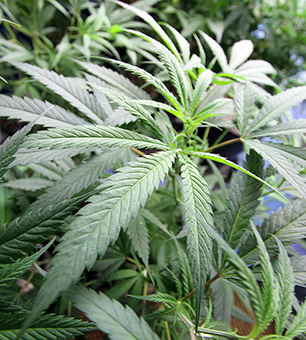 (Photo: Rusty Blazenhoff / Flickr)Alaska state election officials have confirmed that proponents of a statewide ballot measure to regulate the production and sale of marijuana in a manner similar to alcohol has enough signatures to qualify for the 2014 ballot. Voters in Oregon – and possibly California – will have the opportunity this year to decide on similar ballot measures. Recently published statewide and national polling data indicate that some, if not all, of these initiatives are likely to meet voter approval. Voters in Colorado and Washington already have.
(Photo: Rusty Blazenhoff / Flickr)Alaska state election officials have confirmed that proponents of a statewide ballot measure to regulate the production and sale of marijuana in a manner similar to alcohol has enough signatures to qualify for the 2014 ballot. Voters in Oregon – and possibly California – will have the opportunity this year to decide on similar ballot measures. Recently published statewide and national polling data indicate that some, if not all, of these initiatives are likely to meet voter approval. Voters in Colorado and Washington already have.
Voters in Colorado and Washington already have. In Washington, the possession of marijuana by an adult is no longer a criminal or civil offense. In Colorado, the possession and cultivation of pot by an adult is now without penalty, as is the commercially licensed production and retail sale of cannabis. For decades, public officials have warned that regulating cannabis production, sales and consumption was a practical impossibility and that any significant change in marijuana policy would send “the wrong message” or cause the sky to fall. Yet the initial experience in Colorado, which began taxing and tracking retail marijuana sales January 1, 2014, has shown these beliefs to be misplaced. State officials can regulate cannabis in a manner that satisfies the seller, the consumer and the taxman. This common-sense regulatory framework, otherwise known as legalization, is preferable to cannabis criminalization, a doomed-to-fail public policy that financially burdens taxpayers, encroaches upon civil liberties, engenders disrespect for the law and disproportionately affects lower-income classes and ethnic minorities, who bear the brunt of cannabis arrests and prosecutions.
The time has come to replace marijuana prohibition with public policies that properly regulate the cannabis market and that allow for pot’s private consumption by adults in a manner similar to alcohol and tobacco. Criminalization is a disproportionate public policy response to what is, at worst, a public health concern, not a criminal justice issue.
Regulations such as age restrictions for consumers and licensing requirements for commercial producers and merchants, are effective and proven alternatives to prohibition. For example, the public’s overall consumption of alcohol and tobacco, and young people’s use in particular, now stand at near-historic lows. (According to the latest federal government figures, alcohol consumption among young people has declined from 75 percent of 12th-graders in the late 1970s to 40 percent today. Tobacco use among 12th-graders has fallen similarly, from 28 percent in the 1990s to just 16 percent today.) These results have been achieved not by imposing blanket criminalization upon society but by legalization, regulation and public education.
Colorado lawmakers are – and those in Washington soon will be – applying these tried-and-true principles to cannabis. Public officials should welcome bringing these necessary and long-overdue controls to the cannabis market.
Of course, those of us who advocate for a regulated, above-ground cannabis market agree that marijuana use by adults is not without concern. Where we disagree is on the matter of what is the best public policy: one of regulation or one of continued prohibition.
In short, concerns regarding cannabis’ abuse potential do not validate the substance’s continued criminalization – a policy that results in the arrest of some 750,000 Americans annually, 90 percent of which are for possession only. Just the opposite is true. There are numerous adverse health consequences associated with alcohol, tobacco and prescription pharmaceuticals – all of which are far more dangerous and costlier to society than cannabis. It’s precisely because of these consequences that these products are regulated and their use is restricted to particular consumers and specific settings. Why would society not benefit from the imposition of similar regulations upon marijuana?
Cannabis prohibition is typified by an absence of any regulatory framework or legal controls. Prohibition drives markets underground and abdicates control of these markets to those who typically operate outside the boundaries of law. By contrast, legalization allows for lawmakers to establish legal parameters regarding where, when and how an adult cannabis market may operate. Legalization also provides oversight regarding who may legally operate in said markets and provides guidelines so that those who do can engage in best practices. Such oversight benefits not only the consumer but also society overall. Ultimately, only criminals and cartels benefit from the ongoing imposition of cannabis prohibition. The majority of the American public now recognizes this fact; when will the majority of their elected officials?
Media that fights fascism
Truthout is funded almost entirely by readers — that’s why we can speak truth to power and cut against the mainstream narrative. But independent journalists at Truthout face mounting political repression under Trump.
We rely on your support to survive McCarthyist censorship. Please make a tax-deductible one-time or monthly donation.